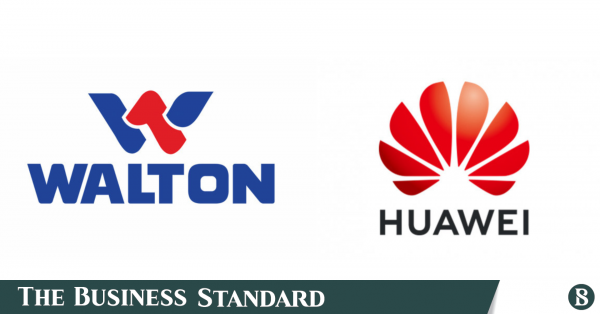Walton, Huawei partner to manufacture lithium batteries for mobile towers


Walton Digi-Tech Industries Ltd is setting up a lithium battery manufacturing plant at its Hi-Tech Park in Chandra, Gazipur.
The homegrown electronics manufacturer has signed a technical collaboration agreement with Chinese technology giant Huawei to locally produce lithium batteries for mobile network sites.
Initially, Walton will target the domestic market, which is valued at Tk500 crore. The company plans to expand into solar power systems, electric vehicles, and electronic gadgets, according to Walton Digi-Tech Industries Chief Business Officer Touhidur Rahman Rad.
Currently, nine mobile tower operators, which manage over 45,000 mobile network towers or Base Transceiver Stations (BTS) across the country, purchase lithium batteries equivalent to around 50,000 units of 48V 100Ah annually.
Walton’s new plant, scheduled to start production in February 2025, will have an annual capacity of 80,000 units, which is expected to meet telecom industry demand for the next five years.
As BTSs require power storage to maintain services during grid disruptions, the shift towards solar power and efficient lithium batteries is accelerating, phasing out less efficient lead-acid batteries.
Touhidur Rahman noted that 30% of BTS batteries have already been replaced with lithium, with expectations for this to rise to 50% in the next two years.
Huawei Bangladesh CEO Pan Junfeng highlighted that Huawei’s advanced technology, including intelligent batteries for telecom BTS, is used by 340 telecom operators in 170 countries, holding one-third of the global telecom energy technology market.
Walton Digi-Tech Managing Director SM Monjurul Alam Ovee said the partnership with Huawei would drive the lithium battery industry forward, contributing to a greener country.
He described the venture as more than a business opportunity, as it supports Walton’s commitment to environmental sustainability by phasing out lead-acid batteries.
Touhidur added that the collaboration with Huawei allows Walton to enter a sophisticated market segment. He also noted that the transition from lead-acid batteries to lithium for solar power systems would be manageable.
Walton Digi-Tech plans to locally manufacture all components of the lithium batteries except the cells due to current limitations in domestic cell production. The company has initially invested Tk15 crore, with a potential additional Tk100 crore investment contingent on the feasibility of setting up a cell manufacturing unit.
The company’s Chairman, SM Rezaul Alam, told TBS that duty relief for imported raw materials is necessary to protect local manufacturers.
Yao Wen, Chinese ambassador to Bangladesh, said, “At present, a new era of energy revolution is ascending globally. Renewable energy sources such as solar photovoltaic and wind power are replacing traditional fossil fuels. Energy storage technology, represented by lithium power, is crucial for future development.”
For comparable performance, a BTS requires two lead-acid batteries, which together cost more. Additionally, lithium batteries are at least three times more durable and have 50% lower carbon emissions compared to lead-acid batteries, says Touhidur Rahman.
Bangladesh Auto Industries Ltd, a local company, has built an electric vehicle and lithium battery manufacturing plant in Chattogram and aims to start production later this year.
However, the government has yet to offer incentives for local manufacturing of greener vehicles or energy storage solutions.




